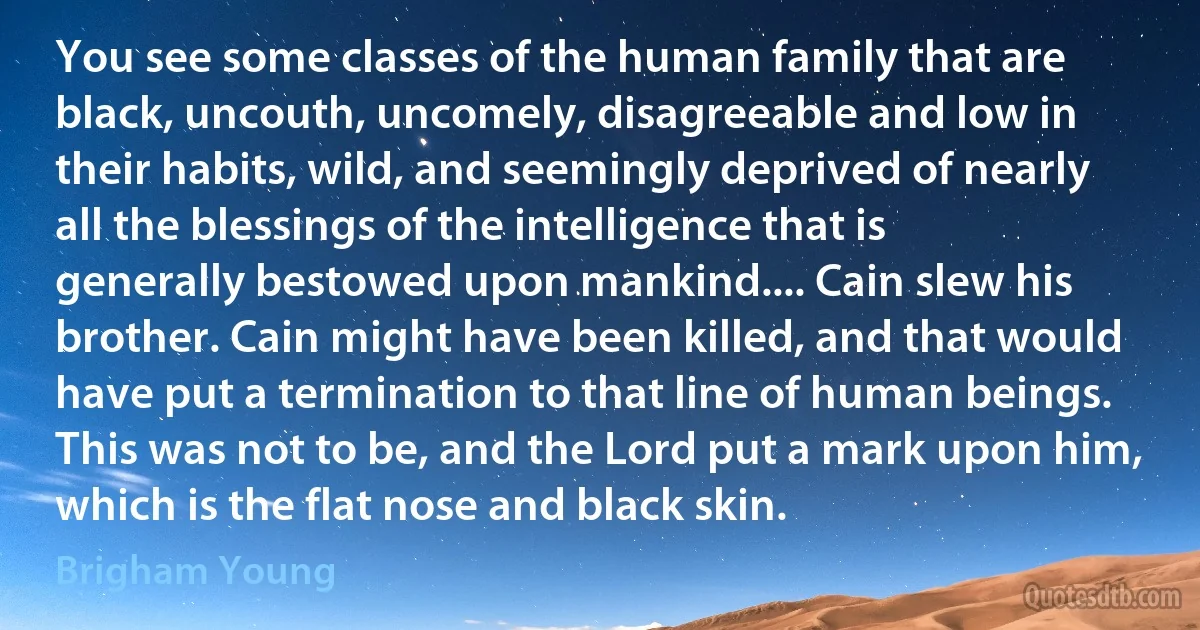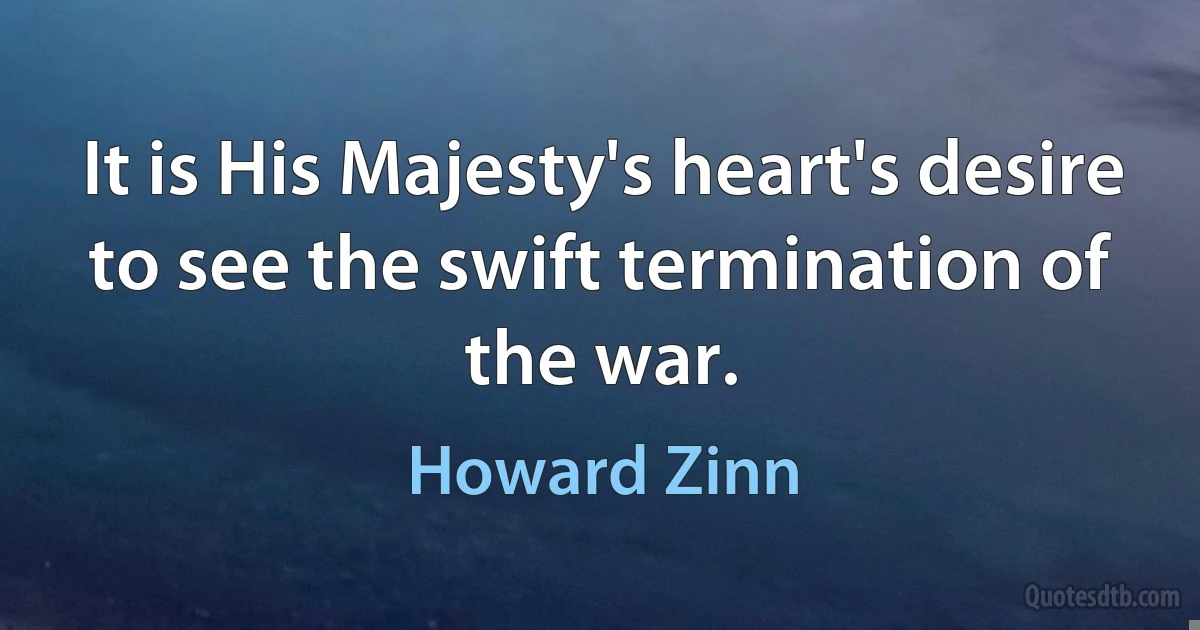Termination Quotes
The great genius does not let his work be determined by the concrete finite conditions that surround him, whilst it is from these that the work of the statesman takes its direction and its termination. ... It is the genius in reality and not the other who is the creator of history, for it is only the genius who is outside and unconditioned by history.

Otto Weininger
If man merely sat back and thought about his impending termination, and his terrifying insignificance and aloneness in the cosmos, he would surely go mad, or succumb to a numbing sense of futility. Why, he might ask himself, should he bother to write a great symphony, or strive to make a living, or even to love another, when he is no more than a momentary microbe on a dust mote whirling through the unimaginable immensity of space?...
Those of us who are forced by their own sensibilities to view their lives in this perspective - who recognize that there is no purpose they can comprehend and that amidst a countless myriad of stars their existence goes unknown and unchronicled - can fall prey all too easily to the ultimate anomie. ... The world's religions, for all their parochialism, did supply a kind of consolation for this great ache ... This shattering recognition of our mortality is at the root of far more mental illness than I suspect even psychiatrists are aware.

Stanley Kubrick
We might as well hope for the termination of the struggle for existence by which, some philosophers tell us, the existence or the modification of the various species of organized beings upon our planet are determined. The battle for political power is merely an effort, well or ill-judged, on the part of the classes who wage it to better or to secure their own position. Unless our social activity shall have become paralyzed, and the nation shall have lost its vitality, this battle must continue to rage. In this sense the question of reform, that is to say, the question of relative class power, can never be settled.

Robert Gascoyne-Cecil, 3rd Marquess of Salisbury
The United States, in order to put a stop to bloodshed in Cuba, and in the interest of a neighboring people, proposed their good offices to bring the existing contest to a termination. The offer, not being accepted by Spain on a basis which we believed could be received by Cuba, was withdrawn. It is hoped that the good offices of the United States may yet prove advantageous for the settlement of this unhappy strife. Meanwhile a number of illegal expeditions against Cuba have been broken up. It has been the endeavor of the Administration to execute the neutrality laws in good faith, no matter how unpleasant the task, made so by the sufferings we have endured from lack of like good faith toward us by other nations.

Ulysses S. Grant
It was objected to Hooke, that his doctrine of the extinction of species derogated from the wisdom and power of the Omnipotent Creator; but he answered, that as individuals die, there may be some termination to the duration of a species; and his opinions, he declared, were not repugnant to Holy Writ: for the Scriptures taught that our system was degenerating, and tending to its final dissolution; 'and as, when that shall happen, all the species will be lost, why not some at one time and some at another?'

Charles Lyell
The Executive order that was issued on February 19, 1942, was for the sole purpose of prosecuting the war with the Axis Powers, and ceased to be effective with the end of those hostilities. Because there was no formal statement of its termination, however, there is concern among many Japanese-Americans that there may yet be some life in that obsolete document. I think it appropriate, in this our Bicentennial Year, to remove all doubts on that matter, and to make clear our commitment in the future.

Gerald Ford
Executive Order 9066 ceased to be effective at the end of World War II. Because there was no formal statement of its termination, there remains some concern among Japanese-Americans that there yet may be some life in that obsolete document. The proclamation [4417] that I am signing here today should remove all doubt on that matter.

Gerald Ford
It has been the persuasion of an immense majority of human beings in all ages and nations that we continue to live after death,-that apparent termination of all the functions of sensitive and intellectual existence. Nor has mankind been contented with supposing that species of existence which some philosophers have asserted; namely, the resolution of the component parts of the mechanism of a living being into its elements, and the impossibility of the minutest particle of these sustaining the smallest diminution. They have clung to the idea that sensibility and thought, which they have distinguished from the objects of it, under the several names of spirit and matter, is, in its own nature, less susceptible of division and decay, and that, when the body is resolved into its elements, the principle which animated it will remain perpetual and unchanged.

Percy Bysshe Shelley
Somebody like Jacob, with his views on things like abortion, a man who says he's had six children and never changed a nappy, who says that even if you were to be raped by your father you wouldn't have a right to choose to have a termination - I'm sorry, but I couldn't stay in a party led by somebody like him.

Anna Soubry
To make our story shorter than the miniature groom's, he learnt that his own property in himself was in danger; and that, if the patriot's definition of liberty be true -"it is like the air we breathe, without it we die"-his life was near its termination. A writ was issued against him; and, thanks to a douceur to his valet, two professional gentlemen, as he left his toilet, would deprive his friends at the Clarendon of his company.

Letitia Elizabeth Landon
Cherie Blair can call herself a feminist all she likes, but any feminist worth her salt would have made a point of having a termination - on the NHS, naturally - when she got knocked up the last time. . . Famous women would rather admit to having been sexually abused as children than to having had a termination. . . Myself, I'd as soon weep over my taken tonsils or my absent appendix as snivel over those [five] abortions. I had a choice, and I chose life - mine.

Julie Burchill
Democracy prevents the politician's fulfillment of his obligations to the nation. Even the most well-meaning politician becomes, in a democracy, the slave of his supporters, because either he satisfies their personal interests or they destroy his organization. The politician lives under the tyranny and permanent threat of the electoral bosses. He is placed in a position in which he must choose between the termination of his lifetime work and the satisfaction of the demands of party members. And the politician, given such a choice, opts for the latter. He does so not out of his own pocket, but out of that of the country. He creates jobs, sets up missions, commissions, sinecures--all rostered in the nation's budget--which put increasingly heavy pressures on a tired people.

Corneliu Zelea Codreanu



